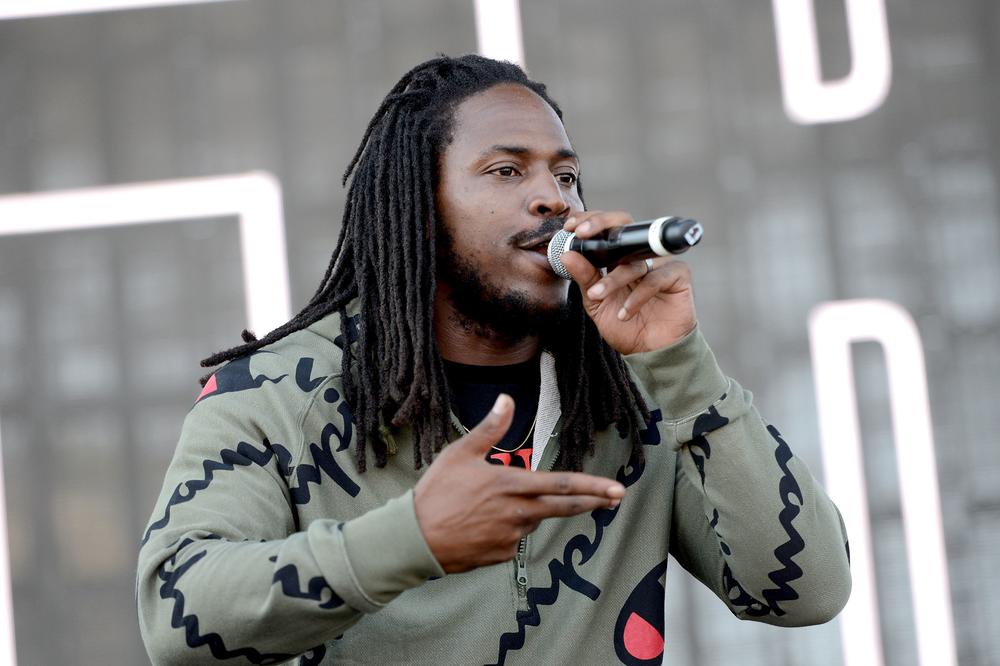A Closer Look in the Mirror: “Mr. Morale and the Big Steppers” Reviewed
by Luke Modugno
Kendrick Lamar is a natural born leader. When he speaks, people listen, and for good reason. Since the release of his 2015 magnum-opus To Pimp a Butterfly, Lamar has positioned himself to be the quintessential voice of insightful social commentary in contemporary rap. Focusing on attacking systems of institutional racism in America and across the globe, Kdot seldom used his Pulitzer Prize-winning pen to explore the complexities of himself. That is, until the recent release of the Compton rappers fifth studio album Mr. Morale and the Big Steppers.
After a grueling 1,855 day hiatus, Lamar has finally made his return with a 18 track collection of reflective ballads focusing on his childhood, identity formation, insecurities and the vastly broad spectrum of the human experience.
From the first seconds of the record's cinematic opener “United in Grief,” it’s clear that Lamar is ready to take yet another step off of the preacher's soap box and shift his musical focus to himself, a journey of inward meditation that began with DAMN. Lamar's dizzying flow accompanied by frantic drums allow Kdot to divulge about his struggles with mental health, the pitfalls of fame and his reliance on religion to get him through a turbulent five years of solidarity. “I went and got me a therapist I can debate all my theories and sharing it, consolidate all my comparisons, Humblin’ up because time is imperative, I’m starting to feel like there’s only one answer to everything,” Lamar raps on the track.
Over the course of his career, Lamar’s discography has been used as an educational reference point in the rap community. Whether he was analyzing African American life and culture on To Pimp a Butterfly, or allowing listeners a glimpse into life in Compton on records like good kid, m.A.A.d city, Lamar’s music sparked meaningful dialogue on topics other than himself. The mirror has been decidedly turned toward Lamar on Mr. Morale and the Big Steppers, allowing the record to be by far his most vulnerable, brave and well-written.
Instead of anointing himself as the leader of a generation as seen on To Pimp a Butterfly, Lamar makes it clear that his flaws, blemishes and vices simply make him a representation of “all of us,” a message plastered across his recent standout single “The Heart Part V” and even his alias for this record: oklama. In the Native American dialect of the Choctaw, “Okla” means people, while the definition of “ma” in the language is utilized when addressing someone, such as “my lord,” leaving the combination of the two to mean “my people.” Tying this motif together is the cover art of the record, showing Lamar sporting an iced-out crown of thorns, a biblical reference to the crucifixion of Jesus Christ. In Christian dogma, Jesus was sent by God as a holy mediator between the heavens and humanity. Christ was both human and God, allowing him to relate to human experiences and identify with all of us. Kendrick is using his God-given ability as an artist to represent humans, their perspectives, insecurities, flaws, and relating to the human condition in a similar vein to Christ. It’s a level of writing, attention to detail and nuanced insight we’ve never seen from the emcee.
Across the rest of the record, Lamar dives deeper into what it means to be of flesh and blood. From his brilliant reframing of childhood trauma and “daddy issues” on tracks like “Father Time” and “Mother | Sober,” poignant and brutally honest representation of the duality love on “We Cry Together” and “Purple Hearts,” to his attack on virtue signaling and idolization of celebrities on “Savior,” Mr. Morale and the Big Steppers is Lamar’s most universally relatable album to date.
Sonically, this record is a deeper exploration of the visceral trap aesthetic that dominated much of DAMN. It’s clear Lamar’s cousin, Baby Keem’s ascension and carved-out experimental trap niche has influenced Lamar’s artistic direction here, producing brilliant moments as well as derivative ones. The guest list on Mr. Morale and the Big Steppers assists Kdot in his trap ventures effectively, as appearances from Kodak Black, Baby Keem, Sampha, Summer Walker, Blxst and Amanda Reifer enhance their respective songs. With production credits belonging to The Alchemist, Pharrell Williams, Keem and Sounwave, experimentalism is dabbled in but never fully produced behind the boards, leaving something to be desired.
Kendrick Lamar’s artistry has progressed past the point of a one week, 800 word review. Over the coming weeks, months and years is when we will truly be able to unpack the complex piece of art that is Mr. Morale and the Big Steppers for its deeper themes. For now, it’s safe to say that Lamar has delivered yet another distinguished body of rap music that will be cherished, studied and held in high regard.
favorite tracks:
United in Grief
Father Time (feat. Sampha)
Purple Hearts (feat. Summer Walker & Ghostface Killah)
Luke Modugno is the editor-in-chief.
Thanks for reading! Follow us on Instagram to stay up-to-date on everything hip-hop.



































